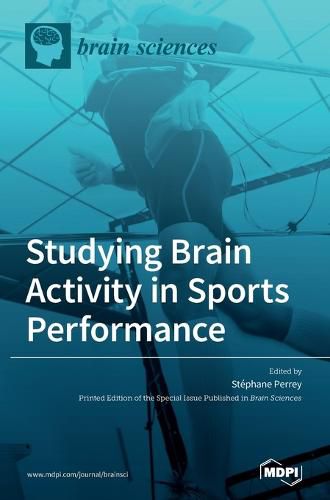Readings Newsletter
Become a Readings Member to make your shopping experience even easier.
Sign in or sign up for free!
You’re not far away from qualifying for FREE standard shipping within Australia
You’ve qualified for FREE standard shipping within Australia
The cart is loading…






This title is printed to order. This book may have been self-published. If so, we cannot guarantee the quality of the content. In the main most books will have gone through the editing process however some may not. We therefore suggest that you be aware of this before ordering this book. If in doubt check either the author or publisher’s details as we are unable to accept any returns unless they are faulty. Please contact us if you have any questions.
The improvement of exercise performance in sports not only involves the enhancement of physical strength, but also includes the development of psychological and cognitive functions. There is an increasing body of evidence to show that physical exercise is a powerful way to improve a number of aspects of cognition and brain function at the systemic and behavioral levels. Yet, several questions remain: What type of exercise program is optimal for improving cognitive functions? What are the real effects of certain innovative exercise protocols on the relationship between behavior and the brain? To what extent do ergogenic aids boost cognitive function? How efficient are neuromodulation techniques in relation to behavioral performance? The answers to these questions likely require multidisciplinary insights not only from physiologists and sports scientists, but also from neuroscientists and psychologists. The manuscripts published (16 research papers and one perspective article from various academic fields) in this Special Issue Book Exercise: A Gate That Primes the Brain to Perform bring together current knowledge and novel directions in human exercise-cognition research dealing with performance. This book showcases the various relationships between cognitive function, brain activity, and behavioral performance with applications in sports and exercise science.
$9.00 standard shipping within Australia
FREE standard shipping within Australia for orders over $100.00
Express & International shipping calculated at checkout
This title is printed to order. This book may have been self-published. If so, we cannot guarantee the quality of the content. In the main most books will have gone through the editing process however some may not. We therefore suggest that you be aware of this before ordering this book. If in doubt check either the author or publisher’s details as we are unable to accept any returns unless they are faulty. Please contact us if you have any questions.
The improvement of exercise performance in sports not only involves the enhancement of physical strength, but also includes the development of psychological and cognitive functions. There is an increasing body of evidence to show that physical exercise is a powerful way to improve a number of aspects of cognition and brain function at the systemic and behavioral levels. Yet, several questions remain: What type of exercise program is optimal for improving cognitive functions? What are the real effects of certain innovative exercise protocols on the relationship between behavior and the brain? To what extent do ergogenic aids boost cognitive function? How efficient are neuromodulation techniques in relation to behavioral performance? The answers to these questions likely require multidisciplinary insights not only from physiologists and sports scientists, but also from neuroscientists and psychologists. The manuscripts published (16 research papers and one perspective article from various academic fields) in this Special Issue Book Exercise: A Gate That Primes the Brain to Perform bring together current knowledge and novel directions in human exercise-cognition research dealing with performance. This book showcases the various relationships between cognitive function, brain activity, and behavioral performance with applications in sports and exercise science.